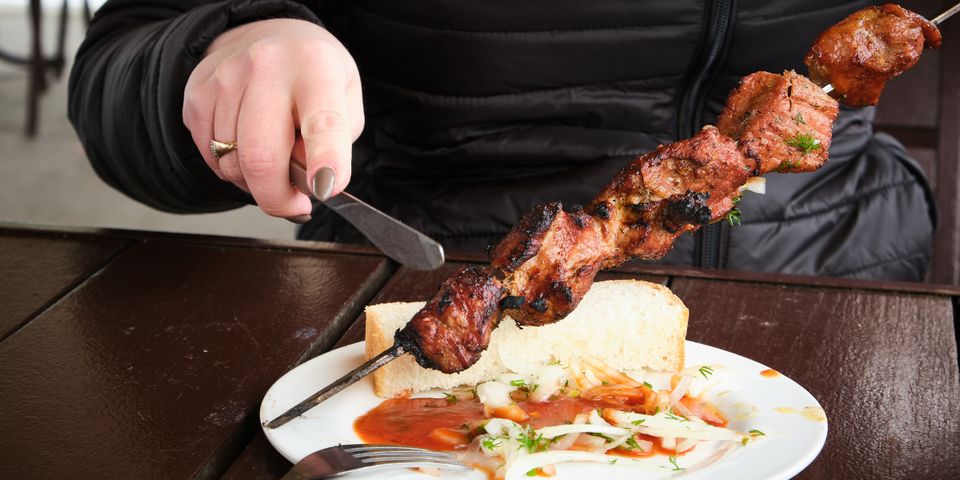
A classic dish in Persian food, kabobs have played a central role in cuisine throughout the Middle East for thousands of years. Usually consisting of chunks of grilled meat or fish and served with vegetables, rice, yogurt, and other toppings, seasonings, and sides, kabobs are a favorite and filling treat. During your next visit to a Persian restaurant, enjoy your meal a little more knowing where it came from.
How Did Kabobs Originate?
Kabobs--also known as kebabs--originated in Persian food as skewers of marinated meat grilled over an open flame. This was often a more practical method of cooking meat for dwellers of medieval Iranian cities, where wood and charcoal for cooking were often limited and had to be used carefully. Mentions of kabob recipes can be found in cookbooks dating back to the 10th century AD.
Shish kebab, the form best-known in English-speaking countries, is believed to have originated with Turkish soldiers, who roasted pieces of freshly hunted meat speared on their swords over campfires. They called this dish şiş kebap, Turkish for “skewered roasted meat.”
However, kabobs weren’t limited to the Ottoman Empire. Greek gyros, Turkish döner kebab, and European shashlik are all variants of the same classic dish, made with everything from lamb to chicken to beef.
When Did They Become Popular Worldwide?

In the second half of the 20th century, kabobs, including recipes unique to Persian food, spread across the world as Iranians and others emigrated to Europe, the Americas, and East Asia. In the United States, the Greek-style mixture of vegetables and lamb became popular, while Turkish döner kebab became a common late-night snack in the United Kingdom, Germany, and other European countries.
In the late 1970s, Iranians brought two of their most famous kabob variants, the barg kabob and the koobideh kabob, with them to North America and Europe. These are made of finely chopped lamb, beef, or chicken and marinated for long hours in olive oil, lemon juice, onions, and seasonings like saffron, salt, and pepper to produce a rich flavor. They’re then grilled on an open flame and served with fresh, hot seasoned rice along with roasted vegetables, yogurt with cucumbers, and salads.
Nowadays, these and countless other varieties of kabobs can be found in bazaars, public squares, roadside stands, and the finest restaurants. They've fully entered the worldwide cuisine world while offering an authentic taste of Persian food and its unique, refreshing flavors.
To sample delicious kabobs and other Persian foods, head to Persian Basket Kitchen & Bar in Johns Creek, GA. Since 2014, they’ve served diners hungry for authentic Iranian cuisine throughout the Greater Atlanta area. They offer a range of classic Persian dishes like barg kabobs and koobideh kabobs as well as fresh twists on established favorites. They also offer a range of vegan, vegetarian, and gluten-free options to suit all tastes. Visit them online to browse their menu or call (770) 674-2779 to place an order.
About the Business
Have a question? Ask the experts!
Send your question

